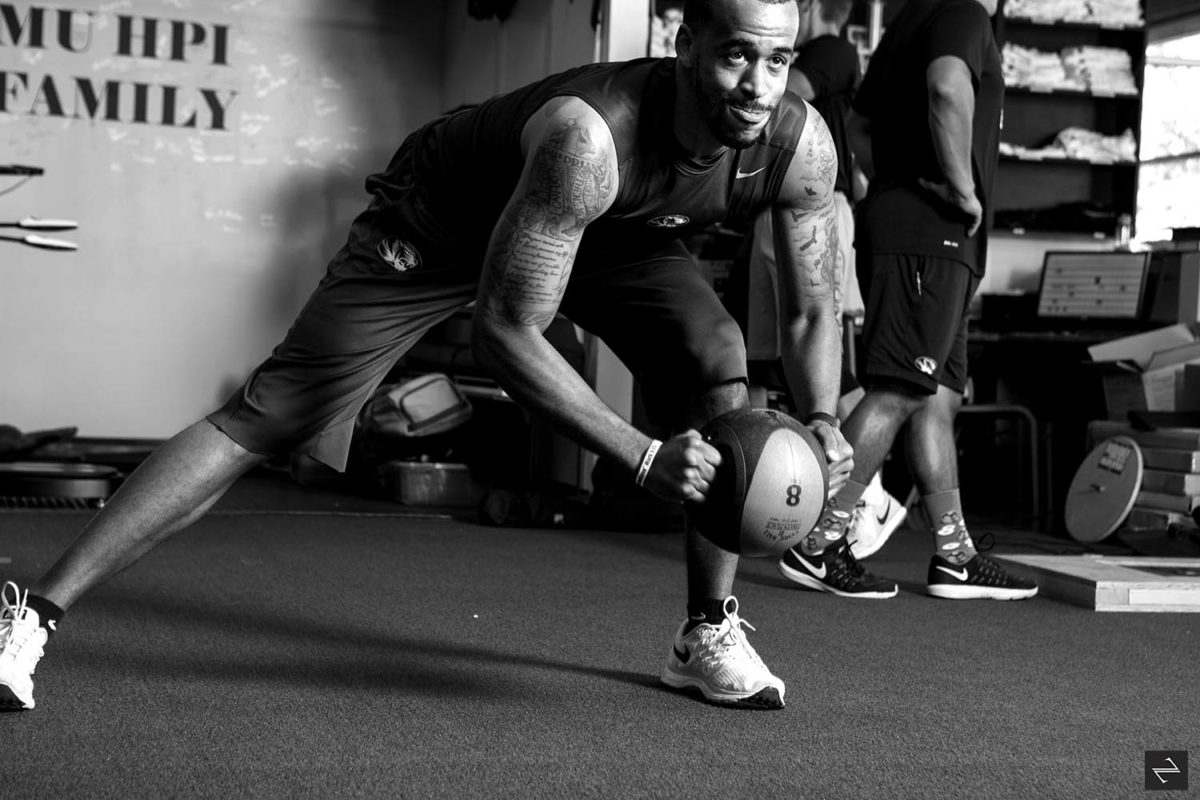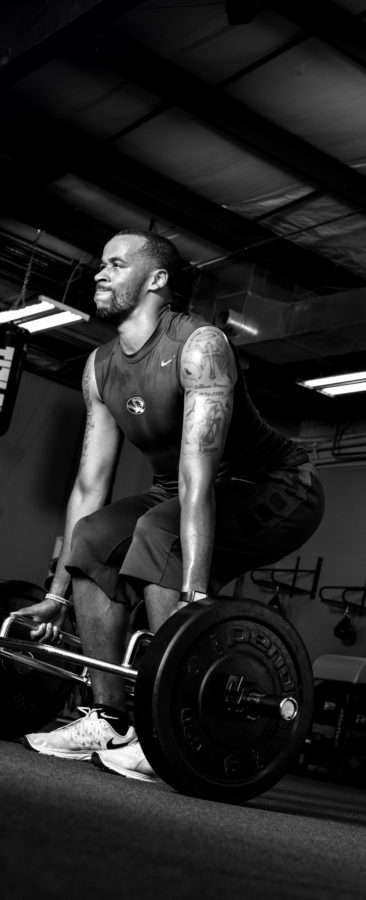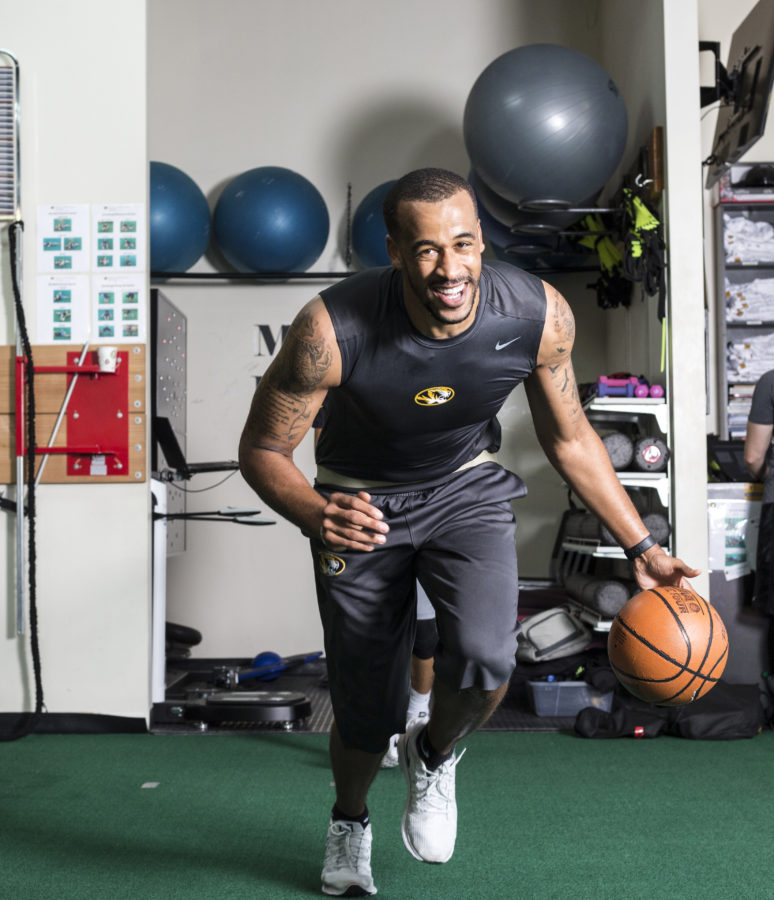How Laurence Bowers finds an edge at the professional level
It requires thoughtful training, advances in medical technology and ... family.

It’s a hot midsummer day in Columbia, and former Mizzou basketball star Laurence Bowers sits in the waiting area of MU Health Care’s Human Performance Institute (HPI) while head trainer, Garrett Buschjost, prepares the day’s workout at the front desk. Since Bowers began training with Buschjost in 2014, the HPI facility has become a key component of the 27-year-old power forward’s continued success at the professional level. He returned to Columbia this summer after averaging 20.2 points and 8.6 rebounds with Italy’s Bondi Ferrara during the 2016-17 season.
“[As a] professional, you have to be very specific with who and what you want to do regarding training,” Bowers says. “[Buschjost] knows the basketball specifics that I need to better my career.”
In a typical offseason, Buschjost says he’ll train with Bowers around 20 times. The first month of the training block is typically kept at a low intensity and volume and includes exercises that are designed to push Bowers’ body back to a state that Buschjost describes as “good.”
Bowers, who has spent the past five years playing professionally in Israel and Italy, has seen his game improve each season in part because of this mindset. In the past, particularly during his career as a Tiger, he sustained and recovered from a variety of injuries, the most severe in 2012, when he was sidelined for the season with an ACL tear.
“He just came back from playing 30 or more games at a very high level,” Buschjost says. “Plus the practice and traveling that goes along with it — his body is feeling the effects of that.” Getting back to “good” is an important start.
Bowers says Buschjost’s training is a key component of his increased durability as a professional. “[Buschjost] has been a big part of why I haven’t had any injuries,” Bowers says. “We trained last year, and I had the best season I’ve ever had. I give him a lot of credit for that, just keeping me in tip-top shape.”
During the first several summer sessions, Bowers and Buschjost work together to detect and prevent any imbalances or minor aches and pains from developing before they become a larger issue. Prior to increasing the intensity or workload in the weight room, Bowers must first be able to reliably move in all planes of motion, ideally without experiencing any lingering pain or restriction. Each session begins (and concludes) with Bowers utilizing the facility’s recovery devices, from the standard foam roller to Dynavision, an electronic light board that works on hand-eye coordination.
From there, he’ll work through a variety of movement patterns and dynamic warmups before starting the day’s basketball-specific work, which, depending on the day, can include anything from plyometrics to resistance and speed-development training. Overall, Bowers feels like he’s at home when he’s training at HPI. And although he plays overseas, Columbia, Missouri, is home for the Memphis native during the offseason.
“A lot of times when I go to the gym, it’s serious. It’s all about putting in the work,” Bowers says. “But here at HPI, everyone is like family to one another. We all come in, we smile and crack jokes, but we also get after it.”
Outside the gym, Bowers is arguably even busier day-to-day. He’s offered his own youth basketball camp series, Camp Bowers, for the past three summers, and dedicates much of his free time to local charities, including the Boys and Girls Club of Columbia. This is his community. It’s why he teamed up with DeMarre Carroll for the first Carroll and Bowers Alumni Game this past July. Bowers has found the wisdom that follows experience. As a husband, and father to daughter Fiyori, he continues to learn. “Having your own, you start to see how much a kid depends on adults,” Bowers says, adding that Fiyori has already made him a better mentor and role model at his camps. He knows he’s surrounding himself with the tools and people he needs to succeed.
“I’ve got good people in my corner,” Bowers says. “Not good people in the sense that they always want to have a good time, but good people in the sense that they always push to make me a better person.”
Photos by Travis Smith



